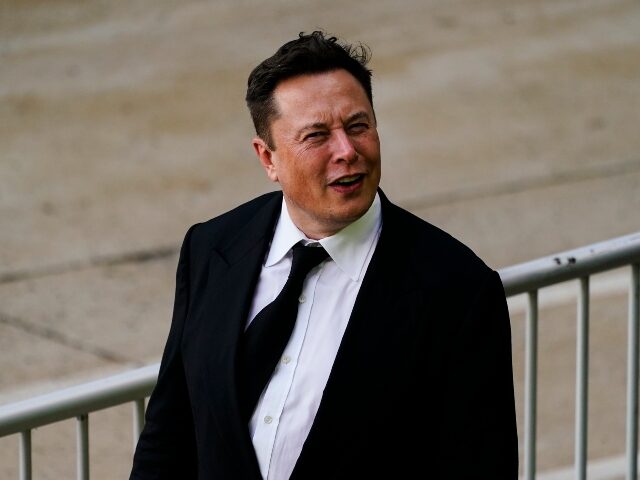Elon Musk unveiled Tesla’s latest autonomous vehicle concept, the “Cybercab” robotaxi, with his signature flair and ambitious timelines that have become all too familiar to investors. Promising driverless transportation in a few years with scant details, Musk’s presentation has fallen flat as Tesla shares are down seven percent in morning trading.
Gizmodo reports that at a glitzy event held at Warner Bros. studios in Burbank, California, on Thursday night, Tesla CEO Elon Musk took the stage to reveal the company’s latest foray into autonomous transportation — the Tesla Cybercab. Billed as “individualized mass transit,” the futuristic two-seater vehicles lack steering wheels and pedals, relying entirely on self-driving capabilities powered by cameras and AI.
In typical Musk fashion, the billionaire entrepreneur made bold claims about the Cybercab’s pricing and timeline. He stated that Tesla expects the cost to be below $30,000 and that the vehicles would enter production sometime in 2026, before hedging with “well, I tend to be a little optimistic with time frames, but in 2026… Before 2027, let me put it that way.” Musk also asserted that the Cybercab would be “the lowest cost by far of any transportation in history,” even suggesting a per-mile price of as low as 50 cents.
However, Musk’s track record when it comes to delivering on ambitious promises has left many skeptical. The CEO has been touting the imminent arrival of fully autonomous Tesla cars for the better part of a decade, with the goalpost seemingly always just a couple years away. In 2019, Musk infamously claimed that Tesla would have a million robotaxis on the road by 2020, a prediction that failed to materialize. More recently, in 2022 Musk stated that Tesla’s Full Self-Driving (FSD) technology would be able to drive without human intervention from home to work, most likely by the end of the year, another unfulfilled promise. A website tracks Musk’s history of broken promises.
The Cybercab event also featured a demonstration of the Optimus robot, with an early prototype performing basic tasks like lifting boxes and watering plants. Musk claimed that the humanoid robot will revolutionize physical labor and cost between $20,000 to $30,000 in the long term. However, details were scant and experts remain doubtful that such a price point is achievable in the near future given the current state of robotics technology. Additionally, Tesla unveiled the “Robovan” capable of carrying a larger number of passengers.
While the Cybercab’s sleek design and promised capabilities seem impressive, Tesla faces stiff competition from established players in the autonomous vehicle space. Companies like Google’s Waymo and GM’s Cruise are already operating driverless taxi services in several U.S. cities, albeit with the crucial addition of Lidar technology that Tesla has thus far eschewed. These companies have logged millions of autonomous miles and have more experience navigating the complex regulatory landscape surrounding self-driving vehicles.
Following the event, Tesla’s stock took a significant hit on Friday morning, with shares falling seven percent in morning trading. Analysts from various firms expressed their disappointment with the event’s revelations. Barclays noted that the presentation emphasized Tesla’s vision for a fully autonomous driving future but failed to highlight any near-term opportunities or provide updates on the company’s low-cost model planned for production in the first half of 2025. Piper Sandler analysts suggested that most trading-oriented firms would be underwhelmed by the robotaxi unveiling and wouldn’t be surprised if the stock sells off in the coming weeks as pre-event momentum fizzles.
Read more at Gizmodo here.
Lucas Nolan is a reporter for Breitbart News covering issues of free speech and online censorship.

COMMENTS
Please let us know if you're having issues with commenting.